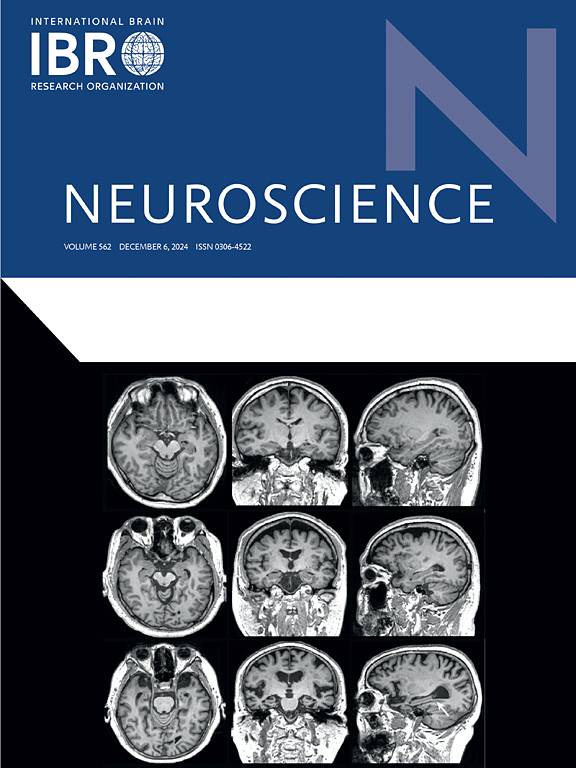Reevaluating Alzheimer’s disease treatment: Can phytochemicals bridge the therapeutic Gap?
IF 2.9
3区 医学
Q2 NEUROSCIENCES
引用次数: 0
Abstract
Alzheimer’s disease (AD) is a growing neurological disorder giving impact cognition and memory, posing a global health challenge with over 55 million individuals affected. It is the 7th foremost cause of dying worldwide, and its pervasiveness is expected to twofold in each five years, reaching 115 million by 2050. AD is characterized by neurofibrillary tangles, senile plaques, and oxidative stress, leading to synaptic failure and cognitive decline. Currently, there is no cure, and available FDA-approved drugs provide only symptomatic relief. The disease progresses through five phases- mild cognitive impairment (MCI), very severe, severe, moderate and mild AD. Research on AD focuses on various neurodegenerative pathways, including inflammation, oxidative stress, genetic factors, environmental variables, and amyloid-beta accumulation. Existing FDA-accepted drugs, like rivastigmine, memantine, galantamine, and donepezil, primarily address early symptoms but have limitations, including side effects and high costs. In this context, phytochemicals from plants, such as resveratrol, huperzine, quercetin, galantamine, and rosmarinic acid, show promise as potential treatments for AD and overcome the challenges and limitation of conventional treatment. These natural substances are being investigated for their ability to lower the risk of AD safely. However, there is a lack of comprehensive knowledge about their application, necessitating further research and clinical trials to explore their potential benefits and limitations. This review serves as an essential reference for advancing future studies on Alzheimer’s disease. By thoroughly analyzing neurodegenerative pathways, addressing drug limitations, and highlighting the potential of phytochemicals, we establish a strong foundation for developing innovative therapeutic strategies. Closing the knowledge gap related to the use of phytochemicals in Alzheimer’s management is not just important; it is critical for creating novel and more effective treatments for this challenging neurological condition.

重新评估阿尔茨海默病的治疗:植物化学物质能弥补治疗差距吗?
阿尔茨海默病(AD)是一种日益严重的神经系统疾病,影响认知和记忆,对全球健康构成挑战,有超过5500万人受到影响。它是世界上第七大致死原因,预计其普遍性每五年翻一番,到2050年达到1.15亿。阿尔茨海默病的特点是神经原纤维缠结、老年斑和氧化应激,导致突触功能障碍和认知能力下降。目前还没有治愈方法,fda批准的药物只能缓解症状。该疾病的进展分为五个阶段-轻度认知障碍(MCI),非常严重,严重,中度和轻度AD。阿尔茨海默病的研究主要集中在各种神经退行性途径上,包括炎症、氧化应激、遗传因素、环境变量和淀粉样蛋白积累。现有的fda认可的药物,如利瓦他明、美金刚、加兰他明和多奈哌齐,主要用于治疗早期症状,但有局限性,包括副作用和高成本。在这种情况下,来自植物的植物化学物质,如白藜芦醇、石杉碱、槲皮素、加兰他明和迷迭香酸,有望成为AD的潜在治疗方法,并克服传统治疗方法的挑战和局限性。人们正在研究这些天然物质是否能够安全地降低患阿尔茨海默病的风险。然而,对其应用缺乏全面的了解,需要进一步的研究和临床试验来探索其潜在的益处和局限性。本综述为进一步开展阿尔茨海默病的研究提供了重要参考。通过深入分析神经退行性通路,解决药物限制,并强调植物化学物质的潜力,我们为开发创新的治疗策略奠定了坚实的基础。缩小与在阿尔茨海默病管理中使用植物化学物质有关的知识差距不仅重要;为这种具有挑战性的神经系统疾病创造新颖和更有效的治疗方法至关重要。
本文章由计算机程序翻译,如有差异,请以英文原文为准。
求助全文
约1分钟内获得全文
求助全文
来源期刊

Neuroscience
医学-神经科学
CiteScore
6.20
自引率
0.00%
发文量
394
审稿时长
52 days
期刊介绍:
Neuroscience publishes papers describing the results of original research on any aspect of the scientific study of the nervous system. Any paper, however short, will be considered for publication provided that it reports significant, new and carefully confirmed findings with full experimental details.
 求助内容:
求助内容: 应助结果提醒方式:
应助结果提醒方式:


